After this, Jesus appeared again to the disciples, this time at the Tiberias Sea (the Sea of Galilee). This is how he did it: Simon Peter, Thomas (nicknamed “Twin”), Nathanael from Cana in Galilee, the brothers Zebedee, and two other disciples were together. Simon Peter announced, “I’m going fishing.” When the sun came up, Jesus was standing on the beach, but they didn’t recognize him. Jesus spoke to them: “Good morning! Did you catch anything for breakfast?” They answered, “No.” He said, “Throw the net off the right side of the boat and see what happens.” They did what he said. All of a sudden there were so many fish in it, they weren’t strong enough to pull it in. Then the disciple Jesus loved said to Peter, “It’s the Master!” – John 21:1-7
Prior to Jesus’ resurrection, he had told his disciples that he would meet them at an appointed place in Galilee after he got up! But due to the disciples’ unbelief and their fears, they had remained in Jerusalem.
Because my Christian Brothers and Sisters, fear will always minimize faith. You can’t conquer something that you are scared to face.
And some of you think you have had a bad week, but these disciples had a week of hell! From Jesus’ triumphal entry into Jerusalem, from them jockeying for positions with high hopes for high places in Christ’s kingdom; from them fighting over who would sit on the right hand and who would sit on the left hand – why must we have politics in the Kingdom? These disciples went through hell week! It shouldn’t matter where you are seated just as long as the Savior is present!
This was hell week. From a supper with Jesus that proved to be his last supper, to his friend Judas who flipped on him, surprised in Gethsemane by men with torches and weapons who had come to arrest them, this was hell week! The disciples had tucked tail and run; Jesus surrendered without a fight; Peter denied him three times; they crucified Jesus on a cross like a common criminal, then buried him in a borrowed tomb.
But three days later the undertaker had to issue a refund because Jesus got up with all power in his hand!
What was the crew supposed to do now? After a week of hell they did as they were told and returned to Galilee. But as they waited there, they remained unsure, confused. So they did what they knew how to do best—they went back fishing.
To catch good fish isn’t easy. Anybody can grab a pole and some bait and try. But do you have the character of a good fisherman? The Bible says that the disciples’ nets were empty. When daybreak arrived, they were tired, they were hungry, and they were frustrated.
It did not help that a voice called to them from the lake.
And I don’t know about you, but I thank God for Jesus’ voice!
In verse four we read, “just after daybreak, Jesus stood on the beach; but the disciples did not know that it was Jesus.”
Has anybody ever felt unproductive, frustrated, and on the brink of failure and all of a sudden you were surprised by Jesus? Jesus called out to the disciples, asking about their catch (they were only about a hundred yards out), only to receive the answer that they had caught nothing.
What do you do when you catch nothing? You keep on fishing until Jesus shows up!
He said to them, “Cast the net to the right side of the boat, and you will find some.” So they cast it, and now they were not able to haul it in because there were so many fish. Y’all missed your shout! Peter and the other disciples were fishing on the sea, catching nothing.
Jesus showed up and Jesus gave a command to go out into the deep water.
Peter followed Jesus’ orders. When they obeyed, a miracle occurred! When Peter saw the miracle, “he fell down at Jesus’ knees, saying, ‘Go away from me, Lord, for I am a sinful man!’”
And I’m like Peter this morning! Let’s go fishing!
Because Peter and his crew were experienced fisherman. In the Word, Jesus chooses fishing as his metaphor to capture the essence of the discipleship process.
It’s alright to be a Christian, but have you been discipled? It’s alright to come to church, but are you in the process? Because my brothers and sisters there is a difference between membership and discipleship. The membership is made up of church goers – those in the church – but discipleship is about those who are in the Word!
Discipleship is about a way of life; membership is more event-based religion. My relationship with God isn’t an event, it’s my lifestyle! The membership is more influenced by culture; but disciples are more influenced by the Kingdom of God. “Seek ye first the Kingdom of God and his righteousness and all these things shall be added”!
The membership is more connected to God by ritual and the institution; disciples are more connected to God by a relationship. And you should never put your rituals above your relationship with God! Our main objective for coming to church should be to get closer to him!
The membership is content with maintenance, but disciples are driven by mission and the great commission. Go ye therefore and invite people to church and to Jesus! You should never come to church by yourself.
The membership looks to develop programs; disciples look to develop ministries. The membership considers themselves owners of material possessions; disciples consider themselves stewards of material possessions and don’t mind giving their offering, tithes, talent, and time for the advancement of the Kingdom.
The membership is content to give according to their own standard; disciples are committed to the tithe and give at all times and refuse to allow there to be a deficit in God’s house.
The membership stops with Jesus as Savior; disciples follow Jesus as Lord. The membership is Sunday-only Christians; disciples are lifestyle Christians.
Are you a member or are you a disciple?!
Because when calling Peter, James, John, and Andrew, Jesus says, “Follow me and I will make you fishers of men.” Jesus challenged these men, especially that thug Peter, because it doesn’t matter where you came from, it’s about where you’re going and who you’re following. Jesus called them from fishing for fish to fishing for men. Because if you are going to produce anything in this season you have to know the difference between your calling and your assignment!
We all have been called to follow Jesus. God has given all of us a mission and an assignment in this world. You’re not here to just take up space; you’re not here to just strive after your own personal goals. You are not here because your momma met your daddy. You have been called!
But there is a difference between your calling and your assignment!
Your assignment is a task or a duty to which you are appointed. Trustee, steward, choir member, musician, minister, usher, missionary, class leader, helper, volunteer are all assignments.
Your calling doesn’t change but your assignment will change; some of the things you are doing right now will probably look different in ten years. You are called to more than being a pew warmer! And you want to be satisfied in Jesus until you find your assignment!
How do you know what God has assigned for you to do?
God will give you a passion for it and God will give you the tools you need to accomplish it. God wants you to win; is there anybody up in here who wants to win? Because when you win, we win!
Verse three declares that Simon Peter said to them, “I am going fishing.” Then they said to him, “We will go with you.” Having returned to Galilee, the disciples did not know what to do next, so it was natural for some of them to return to their occupation. They went back fishing!
Simon, Andrew, and James and John (the sons of Zebedee) are now on their men’s ministry fishing trip. Please understand that fishing is serious business! By the way, it is interesting that at least seven of the 12 disciples were probably fishermen.
And I have a question for the text and I know you’ve been wondering the same thing.
Why did Jesus call so many fishermen to follow him? For one thing, fishermen are courageous, and Jesus needs brave people to follow him. Fishermen are dedicated to one thing and cannot easily be distracted. Fishermen do not quit! They know how to take orders, and they know how to work together.
No wonder Jesus called fishermen, because if you are not busy in your secular job chances are you will be lazy working in the Kingdom. And in order to catch some fish you have to understand the characteristics of a good fisherman. They all had experience fishing!
But I’ve discovered that just because you have experience doesn’t necessarily mean that you have the right characteristics. Because a lot of us have been around the church a long time and we still have empty nets!
Jesus is looking for some courageous, brave, dedicated, determined, and teachable people who don’t mind putting in a good days’ work. Ask your neighbor: have you caught anything yet?
We have titles but empty nets.
We have position but empty nets.
You are talented but you haven’t been tamed: empty nets.
You are gifted – with ugly wrapping: empty nets.
It’s not how much you know, it’s not about how smart you are, it’s not about how many degrees you have, it’s not about how long you’ve been here, it’s not about how old you are.
Are you catching anything? That’s experience. But God is looking for some people who have character. And if you are planning to catch something in this season you have to ask the Lord to work on your patience, persistence, and determination.
And a lot of us come to the lake every Sunday to fish! Tired, and stressed out, quick to throw in the towel, always going off on people, wearing your emotions on your sleeve and flying off the deep end when somebody looks at you wrong,
Why are you always in a hurry? You are too blessed to be a busy body. Sometimes you have to slow down, calm down, and tone down and ask the Lord to work on your patience.
You have to praise while you’re in process. You have to worship while you wait!
Because we live in a world where things are changing rapidly. And we want instant gratification. For many of us, we want what we want when we want it. But I don’t want a shake and bake blessing! I want a crockpot blessing – I want something that God has given time to marinate. Because if you get it quick, you can lose it quick. You have to have some patience!
That’s why I have to remind myself of Isaiah 40:31:
But they that wait upon the Lord
shall renew their strength;
they shall mount up with wings as eagles;
they shall run, and not be weary; and they shall walk, and not faint.
Patient people enjoy better mental health! And if I were you, before I go fishing, make sure you are right before you mess up somebody else. And I would refuse to allow people to drive me crazy! And instead of cussing people out and running them down, just take a few minutes and slow down, calm down, and tone down.
And say your little prayer and turn them over to the Lord, because God can handle them better than you can!
You don’t have to blast them on social media—pray about it!
You don’t have to talk about them behind their backs—pray about it!
You don’t have to lose your temper when they are not even worth it—pray about it!
You can’t catch anything if you don’t have patience!
Simon Peter said to them, “I am going fishing.” And they said to him, “We will go with you.” Fishing is serious business. Anybody can go fishing, but you have to have some character to catch some fish!
You have to know what you are working with. And if you are planning to catch something in this season you have to have the right equipment – the Word of God. “All scripture is given by inspiration of God, and is profitable for doctrine, for reproof, for correction, and for instruction in righteousness.”
“Thy word is a lamp unto my feet, and a light unto my path.”
“Yes, the grass withers and flowers fade, but the word of our God endures forever.”
“The word of God is alive and active, the word of God is sharper than any double-edged sword.”
“Your word I have hidden in my heart, that I might not sin against You.”
“Heaven and earth will pass away, but your words will by no means pass away.”
And if you are planning to catch something in this season you have to have the right bait – Jesus! “But God demonstrates his own love toward us, in that while we were yet sinners, Christ died for us.”
JESUS: his love,
JESUS: his mercy,
JESUS: his peace and
JESUS: his joy!
The Hymn writer asks the question:
How to reach the masses, men of every birth,
For an answer, Jesus gave the key:
“And I, if I be lifted up from the earth,
Will draw all men unto Me.”
Lift Him up, lift Him up;
Still He speaks from eternity:
“And I, if I be lifted up from the earth,
Will draw all men unto Me.”
And if you are planning to catch something in this season you have to have the right attitude – the fruit of the Spirit!
“But the fruit of the Spirit is love, joy, peace, forbearance, kindness, goodness, faithfulness, gentleness and self-control.”
You can’t be nasty and negative.
You can’t be jealous and juvenile.
You can’t be critical and cynical.
You can’t be stingy and stuck up.
You can’t be sneaky and stubborn.
You have to have the right bait and the right attitude.
A good fisherman expects to catch fish!
Not running them away
Not looking down on them
Not talking about how short their shirt is
Not talking about how many tattoos they have
Not talking about how loud their praise is –
because you have to catch the fish before you can clean the fish.
A good fisherman has the right presentation – a spirit of grace. You are not arrogant but you understand that the only reason hell hasn’t sent for you is because of the grace of God!
It is God’s grace, his kindness, his undeserved favor that reached to us when everybody else gave up on us and counted us out, even when we were his enemies – he saved us.
It is his grace that covered our guilt with righteousness. It is his grace that keeps us. The Bible says, “for we were saved by grace,” through faith and kept by grace through faith.
It is his grace which brings us to the foot of the cross. We can’t brag, because all of us were like filthy rags in his sight. It is his grace that not only covers our failures, it transforms them into distinctive points of power and ministry.
My troubles are now my testimonies!
My messes are now my miracles!
My pain is now the fuel of my praise!
It is because of his grace that he gifts us, it is because of his grace that he has enabled us to experience the joy of service, the delight of laboring with Jesus as he builds his Church.
It is because of his grace that he puts resurrection power at our disposal, allowing us to persevere and prevail. It is because of his grace that he rewards us, even in our unworthiness.
It is because of his grace that he indwells in us, allowing us to experience the richness of moment-by-moment fellowship with the Spirit of the Lord.
It is because of his grace that he is returning for us, to transform us and allow us to experience the wonder of all he has prepared for us.
Thank God for his grace! And I stop by to tell you, keep on fishing! It’s that grace that we have to extend to other people.
You might be messed up—but grace.
You might be strung out—but grace.
You might have made mistakes—but grace.
You might have had some addictions – but grace.
“Therefore that disciple whom Jesus loved said to Peter, “It is the Lord!” And I don’t know about you, but I wouldn’t leave this place with empty nets! I’m going fishing!
And the Lord will provide!
Note from the Editor: The featured image for this sermon is “Plane-filling Motif with Fish and Bird” by M.C. Escher.

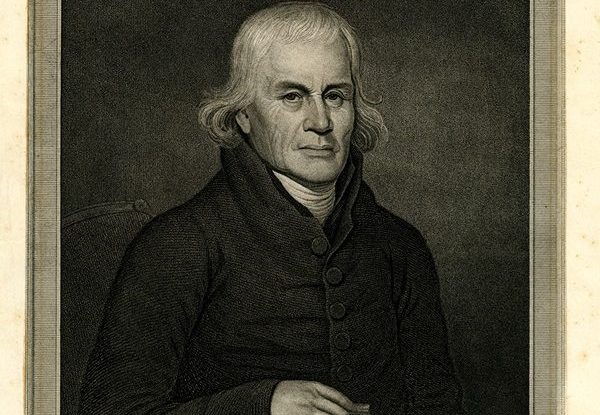
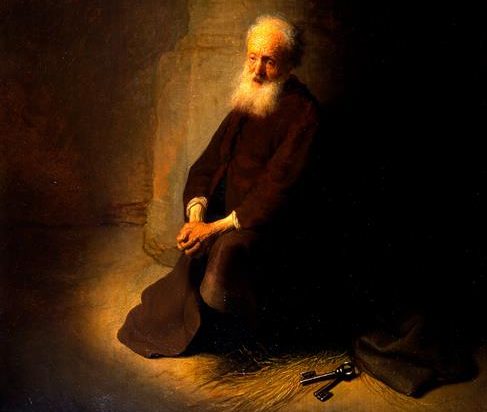
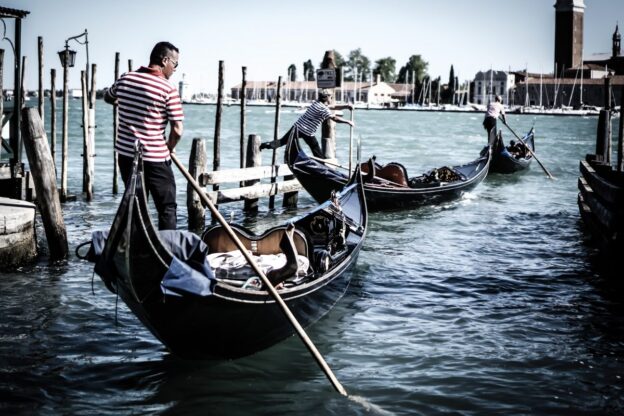
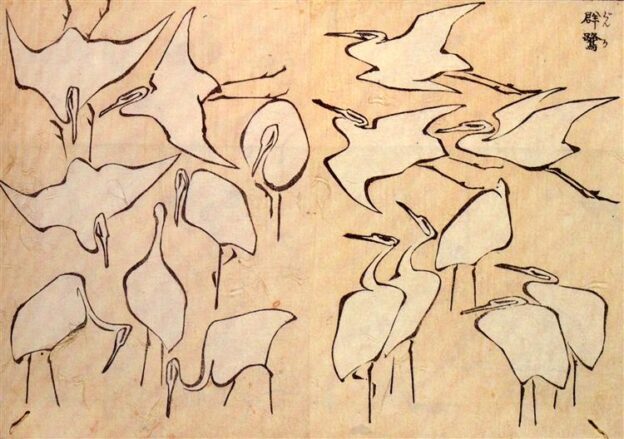
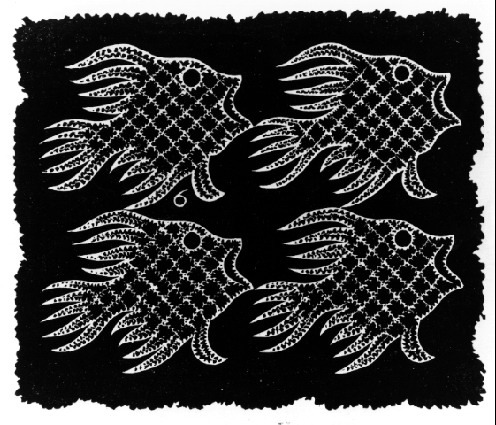


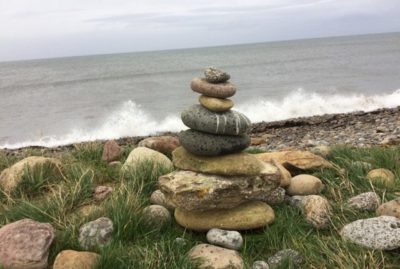


 A quote by Canon Stephen Shipley, discovered a few weeks after I had been to Northumbria after my first opportunity to explore Lindisfarne, confirmed that I was indeed on a pilgrimage:
A quote by Canon Stephen Shipley, discovered a few weeks after I had been to Northumbria after my first opportunity to explore Lindisfarne, confirmed that I was indeed on a pilgrimage:

